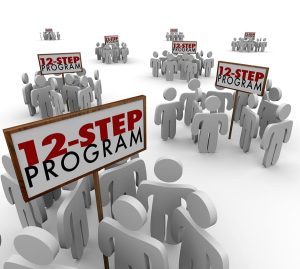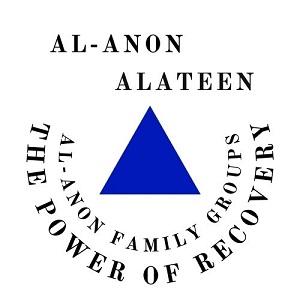24 Hour Helpline 510-839-8900 English 510-502-8560 Espanol Helplines are staffed 24/7 by A.A. member volunteers who have solved their drinking problem.
24 Hour Helpline 510-839-8900 English 510-502-8560 Espanol Helplines are staffed 24/7 by A.A. member volunteers who have solved their drinking problem.
If you’re concerned about a loved one’s drinking problem, consider Alcoholics Anonymous (AA) as a solution. For over 80 years, AA has supported millions in overcoming alcohol addiction. Their recovery program thrives on the principle of one alcoholic sharing their journey with another.
Alcoholics Anonymous offers a comprehensive recovery program tailored for alcoholism. By increasing public awareness about alcoholism, we can provide more effective support to those in need. Enhanced understanding of the issue helps break down stigmas associated with this disease, ultimately improving assistance for those affected.
Alcoholism is an illness that affects people of all ages, socioeconomic backgrounds, genders, abilities, orientations, nationalities, cultures, ethnicities, and beliefs. Loss of control for the alcoholic is not measured by how long one drinks or how much one drinks. It is up to the individual to determine if they have a drinking problem or if they want help as well as recovery.
AA members share their experience, strength, and hope with anyone seeking help with a drinking problem; they give person-to-person assistance and/or sponsorship to the alcoholic regardless of how they get to AA.
Members sharing the AA recovery program with other alcoholics is vital to recovery. Many newcomers best relate to those who have found recovery regardless of how hopeless they may feel as times.

Stock photo. Membership in AA unknown.
Nonprofessional;
“AA is nonprofessional, self-supporting, multiracial, apolitical, and available almost everywhere. There are no age or education requirements. Membership is open to anyone who wants to do something about their drinking problem.”
Professionals, those that work with the recovery community, commonly refer to AA as a peer mentoring group, support recovery organization, or a mutual aid society. Ongoing support is an essential part of recovery from alcoholism.
Alcoholics Anonymous World Service, Inc. is a nonprofit organization.
Starting in the late 1930s, AA is operated and maintained by the voluntary contributions of its members as are the individual AA Groups.
AA does not affiliate with other entities or organizations.
AA will cooperate with anyone to help the still suffering. Members of AA outreach committees are trained to bring presentations to any group or professional organization in our efforts to better help the still-suffering alcoholic.
AA is in over 180 countries. The book Alcoholics Anonymous, the basic text of AA, has been translated into over 70 languages. There are over 1000 AA meetings a week in western Alameda and Contra Costa counties. Virtual meetings are available around the world. There are AA meetings starting every hour.
There are over 300 other organizations that use the AA Program of Recovery, the Twelve Steps and Twelve Traditions of AA, for other problems and addictions. Each Twelve Step Group or organization keeps to a singleness of purpose. AA members share their experience with recovery from alcoholism so that newcomers can identify to get the help they need.
“There are many different ideas about what alcoholism really is.
The explanation that seems to make sense to most AA members is that alcoholism is an illness, a progressive illness, which can never be cured but which, like some other diseases, can be arrested
Going one step further, many AAs feel that the illness represents the combination of a physical sensitivity to alcohol and a mental obsession with drinking, which, regardless of consequences, cannot be broken by willpower alone.”
– Copyright A.A. World Services, Inc. Frequently Asked Questions About A.A.
AA is not anti-alcohol. Members have no interest in alcohol reform or the use of alcohol by others. Anyone concerned with their drinking or the drinking of a loved one is welcome in an open AA meeting.
Members of AA do not impose their experience with drinking on others; they will share their experience when asked to do so. Recovered alcoholics know their own sobriety depends on connecting with other alcoholics, carrying the message of recovery to the still suffering.

Stock photo. Membership in AA unknown.

Stock photo. Membership in AA unknown.
Members of AA protect their anonymity:
to protect the AA organization, their professional and private lives, the lives of other alcoholics, and most importantly, those seeking help with their drinking problem: the newcomer.
Your anonymity will be protected. AA does not keep information on their members nor track or record who contacts them.
Members of AA protect their anonymity:
to protect the AA organization, their professional and private lives, the lives of other alcoholics, and most importantly, those seeking help with their drinking problem: the newcomer.
Your anonymity will be protected. AA does not keep information on their members nor track or record who contacts them.

Stock photo. Membership in AA unknown.
AA as an organization does not endorse or participate in studies about alcoholism or Alcoholics Anonymous.
Nonalcoholic professionals have been involved with and have supported the AA organization from its beginnings in the 1930s. Professionals assisted in creating the program of action, and have helped enormously in laying the foundations of the AA organization.
Alcoholics Anonymous is an alcoholism recovery program with one primary purpose: to carry the message of recovery to alcoholics who still suffer.
AA does not diagnose anyone with a drinking problem; however, we can show others how to diagnose themselves.
If you think you have a problem with your drinking, ask yourself these simple questions:
If you answer “no” to either of these questions and would like help, please call our 24-hour Hotline:
510-839-8900 (English) or 510-502-8560 (Espanol)
Or attend a meeting: (visit our meeting list to choose one)
Or contact us by email: (help@eastbayaa.org)
If your drinking does not bother you, it does not bother us. If you think you have a drinking problem, we have a solution. Experienced AA members suggest that the sooner you address this progressive illness, the easier it will be to recover.
"Coming together is a beginning, staying together is progress, and working together is success."

Stock photo. Membership in AA unknown.
AA is self-supporting through the member’s voluntary contributions. The AA organization is supported and operated by the member contributions in each region or country. Newcomers are encouraged to attend for free.
The founders of AA started as a community of alcoholics helping others get sober and find recovery. They soon realized their program of recovery could help alcoholics around the world. As they began the organization, they realized money could destroy the program that saved their lives, and the recovery community they had grown to love. They decided to make AA self-supporting declining outside contributions would make the organization stronger, as well as help, maintain their primary purpose.
Religion or Spiritual:
One misconception of AA is that it is a religious program. It is neither affiliated with nor endorses any religious belief or dogma. Members of AA range from the hard and fast beliefs of atheism to the most ardent of religious devotees from every denomination, sect, and culture. AA does not endorse nor oppose any other organization or profession.
The spiritual experience in AA is as varied as its members.
Each person finds their own truth about their drinking problem.
Many recovered alcoholics refer to their truth as a spiritual experience.
AA has no interest in discouraging others in their efforts to find solutions to the age-old problem of alcoholism. The AA organization has no opinion on any other subjects, including alcohol reform, detox, alcoholism treatment, social issues, politics, or religion. AA does not oppose medical professionals that are researching other solutions for alcoholism.

Stock photo. Membership in AA unknown.

Alcoholism frequently affects the loved ones of alcoholics. Al-Anon uses the shared experience of its members to help newcomers better understand alcoholism, and find support from others who have faced similar experiences.
Al-Anon Family Groups is a Twelve Step Program of recovery. Members are made up of people concerned with someone’s drinking problem.
Starting with the first gatherings of alcoholics in 1935, before the group or organization had a name, the families of alcoholics were meeting and sharing their experiences with their loved ones. Loved ones joined their alcoholic family members in their gatherings and together, they sought out ways to support sobriety for the entire family.
Making the decision to go to an AA meeting can be intimidating and uncomfortable. Yet, it is a courageous first step in admitting to yourself that you may have a drinking problem that can be helped by the shared experience of recovered alcoholics.
Fortunately, every AA participant has had a similar experience. The organization itself was founded by recovering alcoholics. The success of this program is based on the concept that one alcoholic has the ability to help another alcoholic, as only an alcoholic can. Experience has shown that those who do not understand this disease remain hopelessly unable to help us. The purpose of an AA Group is to cultivate a feeling of community and understanding to bring the program of recovery, the solution, to the alcoholic who still suffers.
Attendees of an AA meeting will be welcomed into the group. Discussion among new members is encouraged, but not required. Participants may share their personal stories, including commentary, experience, and readings from AA literature.
AA offers a variety of meetings, including meetings for people of color, women, LGBTQ+ and the gender non-conforming, newcomers, young people, atheists, and agnostics. Many meetings are all-inclusive, for anyone with a desire to stop drinking. New meetings are being added every day.
AA groups have both open and closed meetings. Closed meetings are for AA members only, or for those who have a drinking problem and “have a desire to stop drinking.” Open meetings are available to anyone interested in the Alcoholics Anonymous program of recovery from alcoholism.
Non-alcoholics may attend open meetings as observers. Whether open or closed, AA group meetings are conducted by AA members who determine the format of their meetings.

Stock photo. Membership in AA unknown.
The AA program of recovery suggests every member should be fully involved in all Three Legacies of AA. Unity, Service, Recovery.
The Three Legacies for a complete recovery program:
Unity: creating a social support system. The psycho-social connection that made AA unique in the world’s efforts to help alcoholics. Creating a social support system for long term sobriety is essential. This is sometimes referred to by professionals as peer-to-peer support or mentoring recovery.
Service: giving back freely in the efforts of service to the still suffering Alcoholic. We know that members who engage in service have much higher success rates. Those who have recovered frequently find giving back to others, as AA’s greatest long-term gift.
Recovery: using the directions in the book “Alcoholics Anonymous” as a program to recover from alcoholism. There is no known cure for alcoholism; however, it can be treated and arrested.

We need always maintain personal anonymity at the level of press, radio, and films.
“Our public relations policy is based on attraction rather than promotion; we need always maintain personal anonymity at the level of press, media, radio, and films.“
“We respectfully ask that AA speakers and AA members not be photographed, videoed, or identified by full name on all media platforms or in any published reports of our meetings, including those reports on public media platforms.”
The primary purpose of East Bay Intergroup, Inc. is to help inform the greater community about AA and alcoholism so that those who need help
can find recovery from alcoholism.
East Bay Intergroup is an organization created and sustained by AA groups in the San Francisco East Bay.
| Cookie | Duration | Description |
|---|---|---|
| cookielawinfo-checkbox-analytics | 11 months | This cookie is set by GDPR Cookie Consent plugin. The cookie is used to store the user consent for the cookies in the category "Analytics". |
| cookielawinfo-checkbox-functional | 11 months | The cookie is set by GDPR cookie consent to record the user consent for the cookies in the category "Functional". |
| cookielawinfo-checkbox-necessary | 11 months | This cookie is set by GDPR Cookie Consent plugin. The cookies is used to store the user consent for the cookies in the category "Necessary". |
| cookielawinfo-checkbox-others | 11 months | This cookie is set by GDPR Cookie Consent plugin. The cookie is used to store the user consent for the cookies in the category "Other. |
| cookielawinfo-checkbox-performance | 11 months | This cookie is set by GDPR Cookie Consent plugin. The cookie is used to store the user consent for the cookies in the category "Performance". |
| viewed_cookie_policy | 11 months | The cookie is set by the GDPR Cookie Consent plugin and is used to store whether or not user has consented to the use of cookies. It does not store any personal data. |